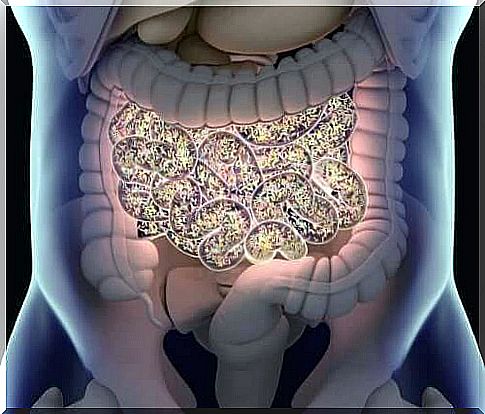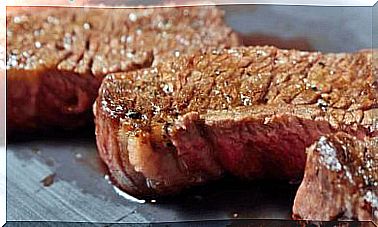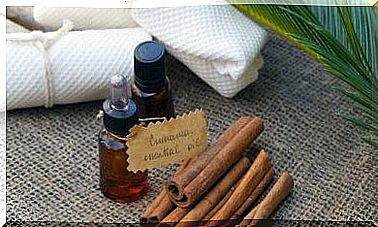Microbiota Accessible Carbohydrates (MACs)

Microbiota accessible carbohydrates (MACs) are carbohydrates that are resistant to the body’s digestive processes. Several studies have even linked them to increased microbial diversity and better overall health.
Microbiota accessible carbohydrates (MACs)
Microbiota accessible carbohydrates (MACs) are indigestible polysaccharides that the microbiota feeds on. Most are soluble fiber.
The term “fiber” refers to the edible portion of carbohydrates that resist digestion and absorption processes. Thus, it is able to reach the large intestine intact. There, the microbiota has the ability to ferment it.
Unfortunately, not all fibers are fermentable. So not all fiber is available to the microbiota. This property, fermentability, is only due to soluble fiber. This means that the fibers:
- able to hold water.
- can swell.
- viscous gels in the gut.
In addition to the benefits associated with its fermentability, soluble fiber is able to form gels with the ability to slow the absorption of fats and sugars.

Fruits and vegetables are the main dietary sources of soluble fiber. Insoluble fiber, on the other hand, cannot be fermented or can be fermented slowly. However, despite the lack of this property, it is also beneficial but for different reasons.
In general, the main feature of insoluble fiber is that they have the ability to cleanse the gut and remove waste from its walls. Insoluble fiber is not fermentable. However, they are beneficial for its ability to increase stool volume and speed up intestinal transit.
Fermenting MACs
In general, the fermentability of carbohydrates is important. This is because it is the only way for healthy microbiota to access it so they can feed. Without it, the beneficial microorganisms would not be able to survive and multiply. Then pathogens would become stronger.
Also, fermentation is a fundamental process for the microbiota to produce substances such as short-chain fatty acids. These have positive nutritional, trophic, metabolic, immune and anti-inflammatory effects.
The benefits of microbiota accessible carbohydrates (MACs)
In general, the benefits of MACs are all due to a healthy microbiota. To name a few, we highlight the following benefits:
- Gut benefits. Healthy microorganisms can improve and stabilize the integrity of the intestinal wall and also improve intestinal transit.
- Anti-inflammatory effects. The microbiota can produce substances with great anti-inflammatory power. Of these substances, we emphasize butyric acid. You should also remember that chronic cellular inflammation is the first step toward many diseases. These include Alzheimer’s disease, cancer, diabetes mellitus, cardiovascular disease, premature aging and obesity.
- Trophic Effects. The fermentation of MACs is essential for the microbiota to provide the body with nutrients. These include short-chain fatty acids such as vitamins K and B12, biotin, and folic acid.
- Immunomodulatory properties. A healthy microbiota can stimulate the gut’s immune response to improve certain natural defense elements of the body. These include IgA antibodies, macrophages, natural killer cells, T cells, interferon and interleukins. It also synthesizes certain components with antimicrobial action.
- Neuropsychiatric properties. Finally, both healthy gut flora and low gut permeability may be the keys to good mental health. In general, a diverse and healthy microbiota is crucial for this.
Foods Rich in MACs

Resistant starch, beta-glucans, fructooligosaccharides, inulin, mucus, and pectin are some MACs. So below we will tell you which foods they contain.
- Resistant starch. Usually this is found in products that have been cooked and refrigerated such as rice, potatoes and oats. You can also find it in sweet potatoes, chestnuts, peas, lentils, buckwheat and cassava.
- Beta glucans. These are present in, for example, algae, oats and mushrooms. In addition to their impact on the microbiota, they are also notable for their incredible ability to modulate the immune system.
- Fructooligosaccharides and Inulin. In general, the foods richest in this type of fiber are garlic, onions, asparagus, and bananas.
- mucilage. These are mainly found in agar-agar, chia seed, tomato and flax seed.
- pectin. The most pectin-rich foods include blueberries, gooseberries, lemons, tangerines, apples, quinces, oranges, and grapes.
Cellulose, hemicellulose, lignin and bran, which are found in whole grains, are insoluble fibers. They are therefore not part of the MACs group.
Conclusion
In general, to maintain a healthy microbiota and thus enjoy good health, you must not only have an adequate amount and variety of beneficial microorganisms. You also have to take good care of them. MACs are specialists in this, so eat enough of the above mentioned products!








